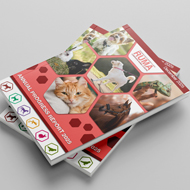The FVE say that proper ebola contingency plans that can be implemented immediately are the best answer for controlling a possible emergence of the virus.
FVE say risk of infection is very low if precautions are strictly followed
The Federation of Veterinarians of Europe (FVE) say that proper ebola contingency plans that can be implemented immediately are the best answer for controlling a possible emergence of the virus and for avoiding unnecessary and unhelpful panic.
The FVE say that although the risk that the virus will spread in Europe is very low, it is important that national health services and all health professionals, medical doctors and veterinarians are vigilant and well prepared.
Because Ebola is not an airborne disease, and transmission requires direct contact with blood, secretions or other bodily fluids, the risk of infection is considered very low if precautions are strictly followed.
At present there are not any any licensed vaccines or treatments against the Ebola virus, and the best way to stop the spread of the virus and the disease are strict hygiene and personal protection measures, including quarantine of persons who are suspected to be infected.
The World Health Organisation for Animal Health has issued a technical information sheet on the Ebola virus outlining epidemiological observations and scientific knowledge of the disease including the animal reservoir.
The European Commission is working with the EU Member States within the Health Security Committee (HSC) to keep them informed about the latest developments and to coordinate approaches on prevention and preparation for Ebola.
The FVE also say that euthanasia should not be automatically considered the preferred option when considering how to deal with companion animals which have been in contact with people who have tested positive for the Ebola virus. "Incidents should be dealt with on a case by case basis by a multi-disciplinary team applying science based risk assessment."
Image (C) Centres for Disease Control and Prevention's PHIL







 The RCVS has announced a new version of its 1CPD mobile app, with enhanced features for veterinary surgeons and veterinary nurses to record their continuing professional development.
The RCVS has announced a new version of its 1CPD mobile app, with enhanced features for veterinary surgeons and veterinary nurses to record their continuing professional development.
